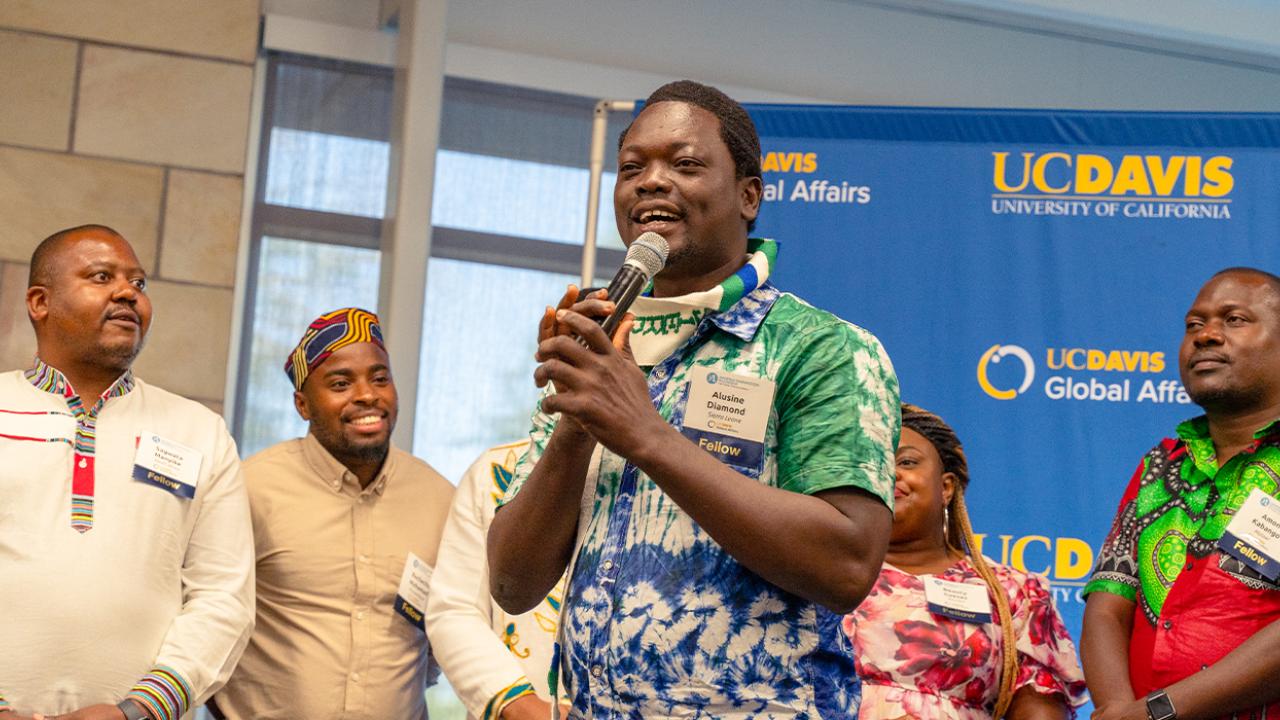
The Untold Reality of Clean Water Access
Key Learnings from a Day in the Life of a Mandela Washington Fellow
My Mandela Washington Fellowship experiences at UC Davis have profoundly reshaped my understanding of water issues.
As part of our Leadership in Public Management Institute, our cohort attended a site visit to the Wastewater Transmission Plant in Davis, where we were introduced to the intricate wastewater treatment and reuse processes. The sheer scale of infrastructure and the volume of wastewater being repurposed for various uses within and beyond the city was astounding.
That same day, I attended an eye-opening Water Issues in California session at the International Center, led by Gabriela Rendon Herrera, an MSc in Ecology student at UC Davis. Gabriela revealed that one million Californians lack access to clean and safe drinking water. Our discussions covered the water cycle and the alarming decline in water levels. She introduced the Functional Flows Approach, a framework essential for maintaining ecological, geomorphic and biogeochemical functions and supporting habitats for native aquatic species. Could this approach be a viable solution for California?
A Realization: Only 0.5% of Earth's Water is Available Fresh Water
Expanding our focus globally, I raised a question during our discussions about a statistic presented by my Mandela Washington Fellowship colleague, Sagwata Manyike (South Africa), who stated that only 3% of the planet's water is fresh. Gabriela confirmed this.
This confirmation leaves me in shock at how such a crucial fact has eluded me until now.
Engaging with my colleagues during the session, Dr. Devotha Nyambo (Tanzania) and Dr. Nadia Soares Indjai (Guinea Bissau), we questioned why world leaders, particularly those in Africa, haven't taken significant actions to address this fresh water crisis. Dr. Devotha suggested that sustainable agriculture could be part of the solution, though it faces resistance from mechanized industries and commercial farmers prioritizing high yields. She highlighted the challenges similar to those in managing carbon footprints in industrial production. Dr. Nadia echoed our collective concern.
Reflecting on this, it's evident that we need to rethink our water usage. According to the Bureau of Reclamation, although 3% of Earth's water is fresh, 2.5% is trapped in glaciers, polar ice caps, the atmosphere, and soil, making it highly polluted or too deep underground to extract affordably. This leaves a mere 0.5% of fresh water available for use. Most of Earth's 326 million cubic miles of water is saline and unsuitable for drinking, agriculture, and most industrial purposes. This stark reality underscores the urgent need for sustainable water management and recycling.

A Path Forward
We must move beyond boardroom discussions and elitist conversations to actionable policies and practices. The world, especially our African leaders and policymakers, must recognize the severity of this issue. Without immediate and deliberate efforts to recycle water sustainably and reduce our carbon footprint, we risk facing a global crisis where clean water becomes a rare and costly commodity, threatening human survival.
I am grateful to the Mandela Washington Fellowship and the UC Davis Global Affairs team for empowering me with this critical knowledge. It is imperative that we all contribute to solving this pressing problem. Your insights and collaboration are crucial as we strive to secure a sustainable future for our planet. Let's act now before it’s too late.